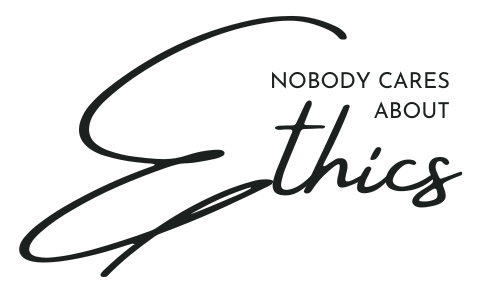I'm Felicity Wild. Like most people, I've got complicated feelings about AI...

As a copywriter, I watched AI upend the creative industries
And felt concerned about the rush towards efficiency over quality. At the same time, I could see its amazing potential for fields like medicine and science. But then I was uncomfortable with the environmental impact, frustrated by unthinking hype, worried about the concentration of power and wealth, and overwhelmed by uncertainty.
All those conflicting emotions left me paralysed.
How AI ethics helped me
I discovered AI ethics and found it wasn't the moral hand-wringing I thought it would be. It was a practical and pragmatic way of working through complex decisions (and feelings!).
It helped me rationalise both the risks and opportunities, see things more clearly and turn my overthinking into better decision-making. It helped me look beyond the immediate wins and think about longer-term impact – what sustains a business, a team, a practice over time.
Most importantly, it helped me understand that the future isn't inevitable. We have agency in how we use this technology, and therefore play a role in shaping how it develops.
The frameworks helped me immeasurably. And I realised: they could help other people too.
I spent over a decade as a copywriter making information relevant, relatable and accessible to specific audiences – now I'm doing this with AI ethics.
How my approach to AI ethics could help you
My approach is collaborative and conversation-based. When everyone has a voice – from senior leadership to frontline staff – you build trust and buy-in. Your people understand the why and have ownership over the how.
It's also non-judgemental. I don't tell you whether to use AI or not use AI – I ask you to stop and think about impact and opportunity. Not just what works right now, but what you can sustain.
What matters to your team? Your customers? Your industry and wider society? What strengthens your business long-term, not just solves today's problem? What builds capability rather than dependency?
The questions come first. The answers follow.
I create a space where people share concerns, challenge assumptions and work through grey areas together. Where teams move from uncertainty to clarity about what good AI looks like for them – not by offering prescribed answers, but by working through real dilemmas together.
The goal is building your internal expertise – so you keep making good decisions as new challenges arise, through a shared understanding of what responsible and sustainable innovation looks like in practice for your organisation.
Connect with me:

